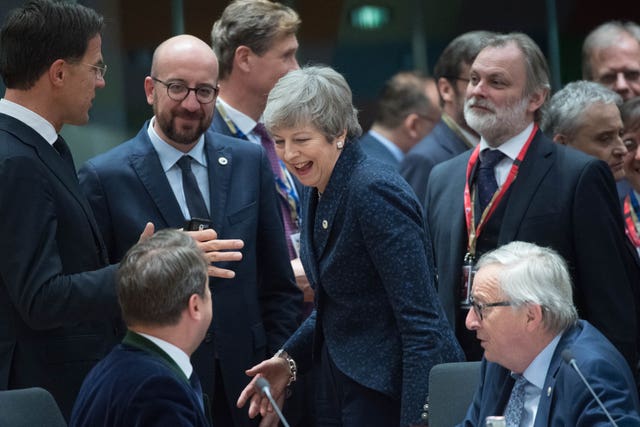Brexit: What happens next?
The timeline for Brexit has been transformed by the agreement in Brussels.

After Thursday’s agreement to delay Brexit, Britain’s EU withdrawal is taking place to a new timetable. So what happens next?
Friday March 22
Theresa May cuts short her attendance at the European Council summit in Brussels to return to the UK and embark on a drive to win over at least 75 MPs to her Brexit plan.
Saturday March 23
Large crowds of opponents of Brexit are expected to throng the streets of London for a Put It To The People march demanding a second referendum.

Monday March 25
Parliament debates an amendable Government motion on the Brexit deal, which gives MPs a chance to put their favoured outcomes to a vote. Mrs May could table secondary legislation which must go through the Commons and Lords by Friday to remove the date of March 29 from Brexit legislation.
Mrs May’s effective deputy David Lidington has promised to introduce a process for MPs to debate potential Brexit outcomes over the following two weeks.
Tuesday March 26
Possible date for the third “meaningful vote” – known in Westminster as MV3 – on Mrs May’s Withdrawal Agreement. Downing Street says that no date has yet been fixed for the vote, which must come by the end of the week.
Wednesday March 27
MPs led by Sir Oliver Letwin hope to seize control of parliamentary time to force votes on Brexit options.
Friday March 29
No longer Brexit day. Leave-backing walkers who have taken part in the Brexit Betrayal march from Sunderland are due to arrive in London.

April 11
Final date for the UK to take steps to enable European Parliament elections to take place.
April 12
If Mrs May has failed to secure Commons support for her Withdrawal Agreement, this is the final day on which the UK can set out its next steps to the European Council, if it wishes to be granted a longer extension. If it does not do so, the UK would leave the EU without a deal.
May 22
If the Commons has approved Mrs May’s deal, the UK formally leaves the European Union on this date with a Withdrawal Agreement, entering a transition period during which it will continue to observe EU laws but have no representation in EU institutions.
May 23-26
European Parliament elections take place across the EU, with or without the UK.
July 1
The first session of the new European Parliament, whose first task is to confirm a new commission and president.
December 31 2020
If the UK has left with a deal, this will be the end of the transition period. London and Brussels have both said they hope to have an agreement on future trade and security relations completed by this point.





